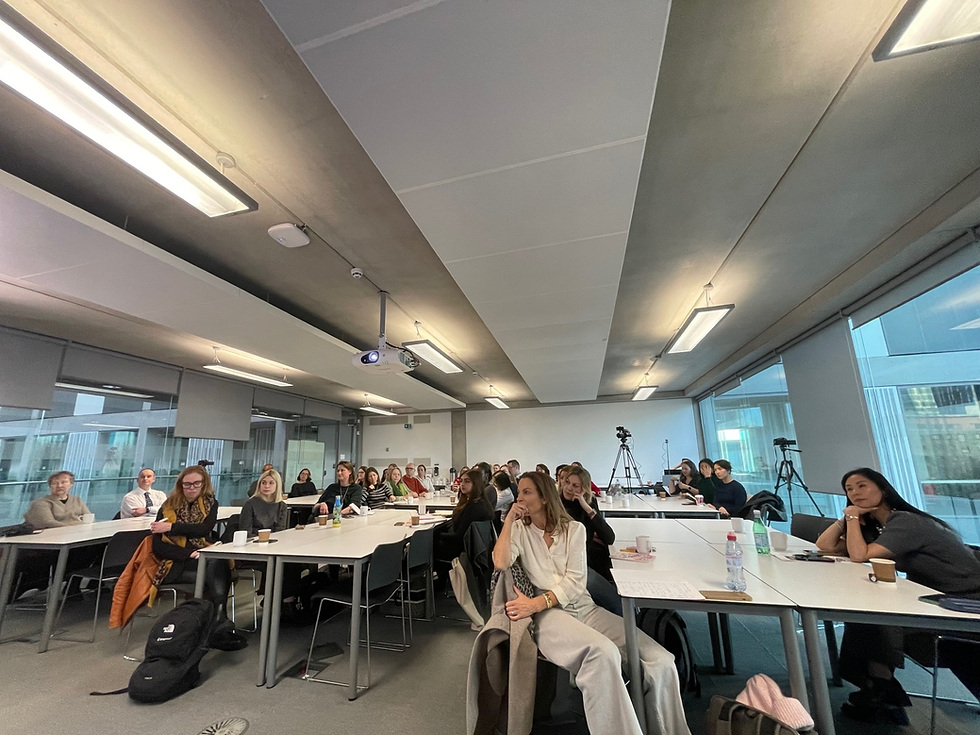AI in Medical Communications: Opportunities, Risks, and the Future
- St Giles Medical

- Aug 26, 2025
- 3 min read

Artificial intelligence (AI) is transforming industries worldwide, and medical communications is no exception. From simplifying data analysis to enhancing scientific writing, AI offers powerful tools that can improve efficiency, accuracy, and creativity. However, alongside its promise come significant risks and responsibilities. For professionals in medical communications—whether writers, editors, educators, or strategists—understanding both sides of AI is essential.
The Benefits of AI in Medical Communications
1. Faster content developmentAI-powered writing assistants can generate drafts, suggest phrasing, and even help adapt materials for different audiences. This can dramatically reduce the time it takes to prepare manuscripts, slide decks, or patient information leaflets.
2. Improved data analysis and visualizationAI can digest large datasets—clinical trial results, real-world evidence, or survey data—much faster than humans. It can identify patterns, generate visualisations, and provide actionable insights that help shape communication strategies.
3. Personalisation of informationBy analysing audience preferences, AI can help tailor messages for healthcare professionals, patients, regulators, or payers. This level of targeting can make communications more impactful and relevant.
4. Enhancing accessibilityAI-driven tools such as automated translation and text-to-speech can make content available to a broader audience, supporting inclusivity and global reach.
The Risks and Challenges
1. Accuracy and reliabilityAI outputs are only as good as the data they are trained on. Inaccurate, outdated, or biased training data can lead to misleading results—an unacceptable risk in medical communications where patient outcomes may be affected.
2. Ethical concernsOver-reliance on AI could reduce human oversight, leading to errors in interpretation or miscommunication of complex medical information. Transparency about when and how AI is used is critical.
3. Bias and fairnessIf AI is trained on biased datasets, it can perpetuate health disparities. Ensuring fairness in AI-driven tools requires continuous monitoring and diverse data sources.
4. Regulatory uncertaintyRegulatory agencies are still shaping guidance on the use of AI in scientific and medical contexts. Companies must stay informed and ensure compliance with evolving standards.
Plagiarism and AI
One of the most pressing concerns in using AI-generated text is plagiarism. AI tools can reproduce content from training data without attribution, raising ethical and legal issues. In medical communications, originality and proper citation are essential.
Always verify sources: AI should never be the sole author of scientific or medical content.
Use plagiarism checkers: All AI-assisted outputs should be reviewed for originality.
Maintain human oversight: A medical writer’s expertise in interpreting evidence, ensuring clarity, and aligning with ethical standards cannot be replaced.
Best Practices for Using AI Responsibly
Treat AI as an assistant, not a replacement. Use it to support your workflow but retain full accountability for accuracy and quality.
Review everything critically. Always fact-check, edit, and adapt AI outputs to suit the audience and context.
Be transparent. If AI tools are used in the drafting process, disclose this appropriately.
Stay updated. AI tools evolve rapidly; keeping abreast of new developments, regulations, and ethical guidelines is essential.
Looking Ahead: The Future of AI in MedComms
The future promises even greater integration of AI into medical communications:
Interactive content: AI-driven chatbots and virtual assistants could support patient education by answering health questions in real time.
Predictive analytics: AI may forecast trends in healthcare practice or patient needs, informing communication strategies.
Augmented creativity: AI will likely help generate more dynamic multimedia content, from animations to immersive educational tools.
However, human expertise will remain central. Empathy, ethical judgement, and the ability to tell meaningful stories from complex science are skills that AI cannot replicate. The most effective future will be one where AI and medical communicators work hand in hand—combining technological power with human insight.
✅ Key takeaway: AI offers exciting opportunities for medical communications, but it should be used responsibly, transparently, and always under expert human oversight. At St Giles Medical, we are committed to exploring these innovations while upholding the highest standards of accuracy, integrity, and patient focus.









Comments